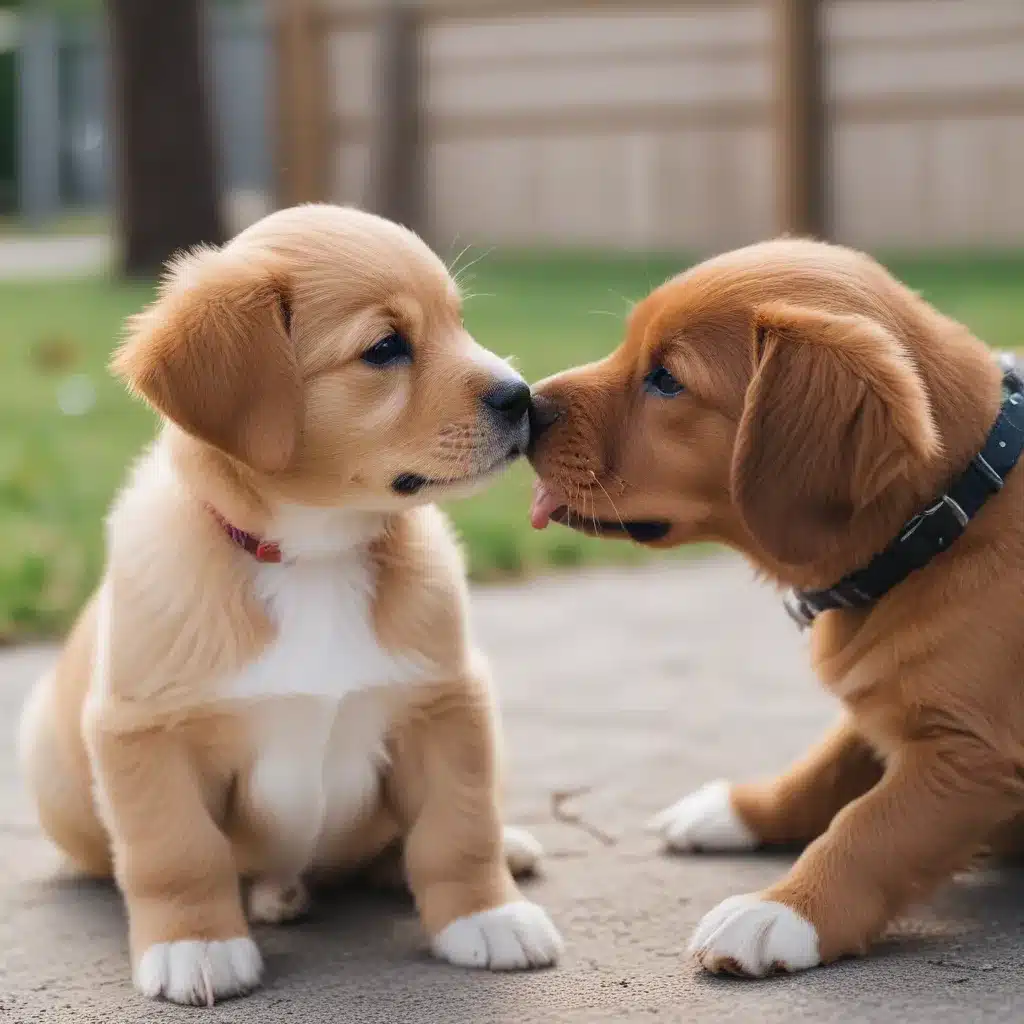
The Importance of Puppy Socialization
As a new puppy parent, I can tell you that the socialization process is crucial for your furry friend’s development. It’s not just about introducing them to other dogs – it’s about exposing them to the whole wide world in a positive, confidence-building way. And let me tell you, I wish someone had driven this point home for me when I first brought home my little pup, Buddy.
You see, I made the mistake of listening to my vet’s advice and keeping Buddy locked up until he was fully vaccinated. Big mistake. By the time he was ready to venture out, he was already a nervous wreck around anything new. Barking at the mailman, cowering from the vacuum cleaner, forget about playdates with other pups. It was heartbreaking to see, and I knew I had to turn things around.
Starting Socialization Early
That’s when I started doing my research and realized the importance of getting your puppy socialized as early as possible – we’re talking as soon as you bring them home! During those first 3-14 weeks, your pup’s brain is like a sponge, soaking up all the new sights, sounds, and experiences you expose them to. And the key is making sure those experiences are positive.
Now, I know what you’re thinking – “But what about the risk of disease?” It’s a valid concern, for sure. That’s why it’s all about finding that sweet spot between keeping your pup safe and getting them out there to explore the world. According to WebMD, you can start socialization classes as early as 7-8 weeks, as long as you’ve got that first round of vaccines under your belt.
Socializing with People
Let’s start with the most important part – getting your pup comfortable around people. And I’m not just talking about your immediate family and friends. No, sir. We’re talking a minimum of 10 new people per week, according to the experts. That’s a lot of socializing, I know, but trust me, it pays off in the long run.
The key is to make these interactions positive experiences for your pup. Have your friends and neighbors offer treats, give gentle pets, and let your puppy approach them at their own pace. This way, they’ll learn that new people mean good things, not something to be afraid of.
And don’t forget about the little ones! Getting your puppy used to being around children, in a supervised and controlled setting, is crucial. Buddy used to get so overwhelmed when my nieces and nephews would come over, but after some targeted socialization, he’s now the star of the show.
Socializing with Other Dogs
Now, let’s talk about the other canines in your pup’s life. As Fern from Fern Dog Training says, “Letting your dog sniff three butts a week during your walks around the block will just not cut it.” Ouch, harsh but true.
Your puppy needs to interact with other dogs in an off-leash environment, where they can really play and learn. This is how they’ll develop that all-important bite inhibition and learn the cues for when to back off. And don’t just stick to other puppies – introduce them to adult dogs too, so they can learn from their elders.
Of course, you’ll want to be smart about it and only set up playdates with dogs you know are healthy and up-to-date on their shots. And steer clear of the dog park until your pup is a bit older and has proven they can hold their own. Slow and steady wins the race when it comes to dog socialization.
Exposing Them to New Environments
But it’s not just people and pups that your puppy needs to get comfortable with – it’s the whole wide world out there. Think about it, everything your little furball sees is like a UFO landing in your backyard. Trains, vacuum cleaners, squeaky toys, you name it, it’s all brand new and potentially scary.
That’s why the AKC recommends exposing your pup to as many different sights, sounds, and textures as possible during those crucial first months. Take them on car rides, let them explore different flooring surfaces at home, heck, even bring them to the vet for a visit (without the shots!). The goal is to show them that this crazy human world isn’t so scary after all.
And remember, it’s all about keeping things positive. If your puppy gets stressed or frightened, remove them from the situation immediately. Slow and steady, with lots of praise and treats, is the way to go. Before you know it, you’ll have a dog with a “been there, done that” attitude, ready to take on the world.
Consistency is Key
I know, it sounds like a lot of work, and it is. But trust me, the payoff is huge. A well-socialized puppy is not only more confident and comfortable in all kinds of situations, but they’re also far less likely to develop behavioral issues down the line. According to WebMD, behavioral problems, not infectious diseases, are the number one cause of death for dogs under 3 years old. Yikes!
So, be patient, be persistent, and most importantly, be consistent. Every new experience is an opportunity to shape your puppy’s outlook on the world. And before you know it, you’ll have a happy, well-adjusted canine companion ready to take on anything life throws their way.
Now, if you’ll excuse me, I’ve got a puppy party to plan. Buddy’s been a social butterfly lately, and I can’t wait to see him make some new four-legged friends. Wish me luck – and don’t forget to visit ihavedogs.com for more great tips and resources for new pup parents like me!

